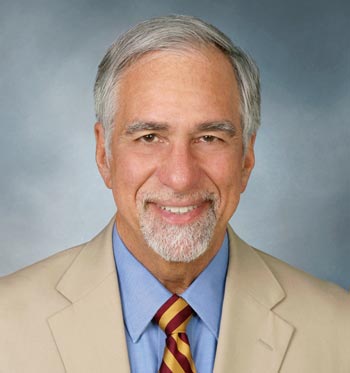Welcome to Show Notes, a Technical.ly feature where we share interesting interviews and clips from around the web featuring local tech and entrepreneurship leaders. Have a podcast or show episode you want to share? Email baltimore@technical.ly.
The episode: A recent episode of the video series TEDCO Talks takes a trip to the recent past of tech development in Maryland. Phil Singerman, the first executive director of the Maryland agency supporting early-stage agencies, talks to Troy LeMaile-Stovall, the current CEO of TEDCO.
Why it’s interesting: At this point, TEDCO seems like a fixed part of the landscape of early-stage funding and support for Maryland entrepreneurs. Singerman’s interview offers a look back at the beginning of the organization, which was created by the state government in 1998. Plus, Singerman, who served with TEDCO until 2005 and has gone on to work with the Gaithersburg-based National Institute of Standards and Technology and serve as an advisor to the Montgomery County EDC, offers perspective on the state’s tech transfer landscape, and where its strengths lie.
A few takeaways:
- Rural and urban focus — Singerman said he started TEDCO with a desk at the Baltimore office of the state economic development department and a $500,000 seed grant. He talks about how the initial focus of TEDCO’s support for early-stage businesses was in rural Maryland areas like Western Maryland and the Eastern Shore, as well as Baltimore city. As opposed to the suburban D.C. counties, it was those areas where Singerman felt the agency, which was then modestly sized, could make the most impact.
- Federal labs — Think of tech transfer, and typically universities come to mind. That’s certainly true in Maryland, where Johns Hopkins and the University of Maryland have plenty of IP and talent that is now forming the basis for commercial products and startups. But, as Singerman notes, there’s another strength: “Maryland’s distinctive competitive advantage is the density and diversity of the federal research institutions in the state,” he said. Along with the many three-letter agencies clustered in Montgomery and Anne Arundel counties, that extends to Aberdeen Proving Ground and Fort Detrick in Frederick. Both the tech and talent in these labs can serve as economic drivers for the state.
- What has led to TEDCO’s staying power? — Speaking about why that is, Singerman pointed to the unique model: “It carries out a public purpose with private sector perspective,” Singerman said. There has also been a continuity of senior leadership. Going forward, LeMaile-Stovall and Singerman talked about the importance of centering diversity, equity and inclusion as it heads into a third decade.
Check out the conversation below:
Before you go...
Please consider supporting Technical.ly to keep our independent journalism strong. Unlike most business-focused media outlets, we don’t have a paywall. Instead, we count on your personal and organizational support.
Join our growing Slack community
Join 5,000 tech professionals and entrepreneurs in our community Slack today!

The person charged in the UnitedHealthcare CEO shooting had a ton of tech connections

From rejection to innovation: How I built a tool to beat AI hiring algorithms at their own game

Where are the country’s most vibrant tech and startup communities?


